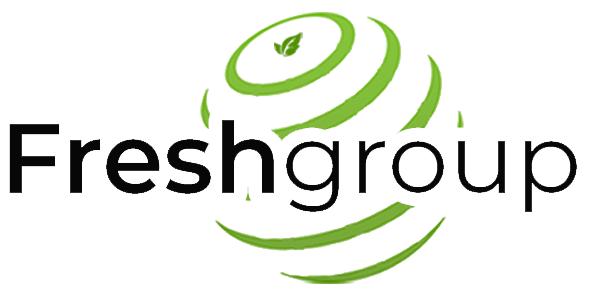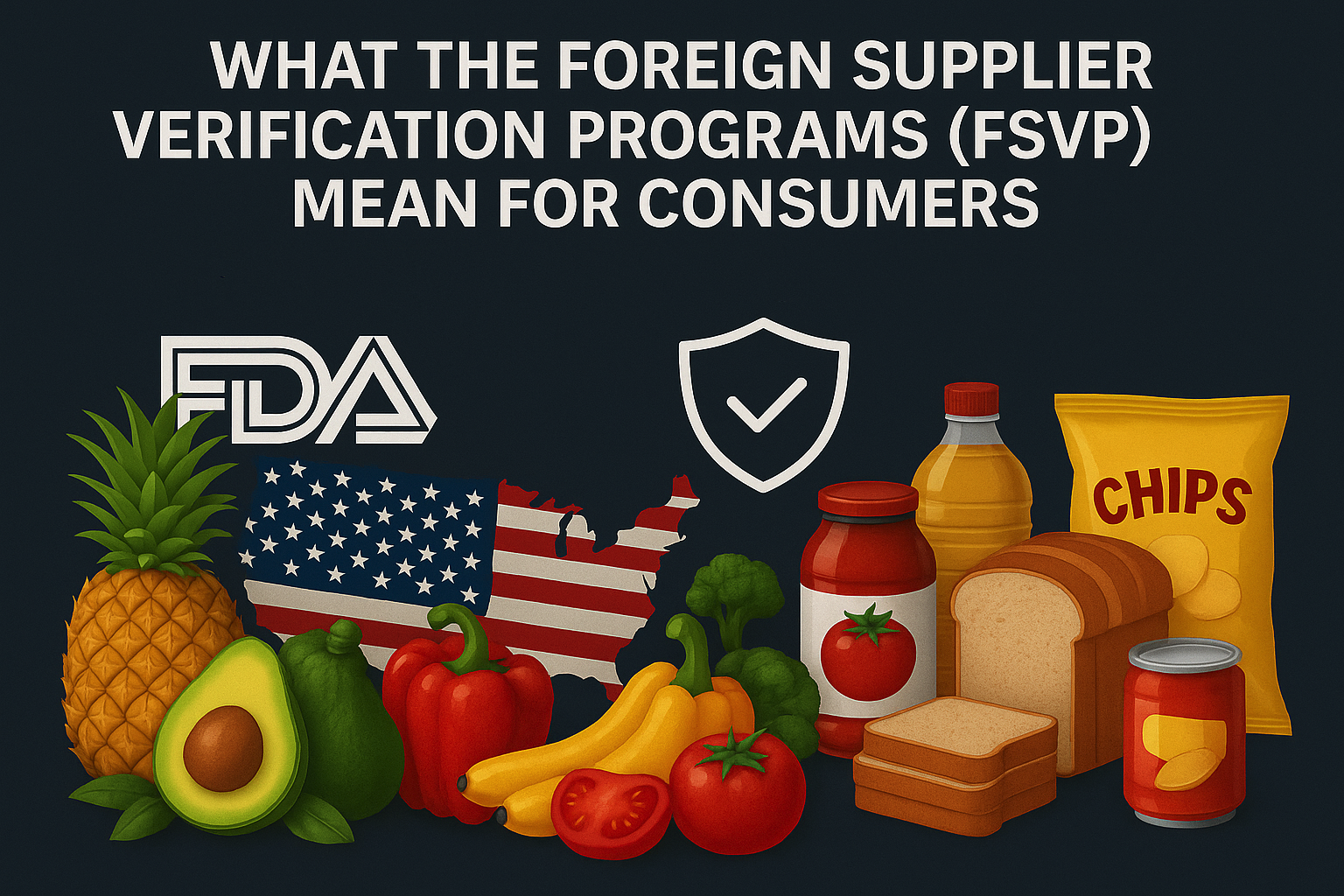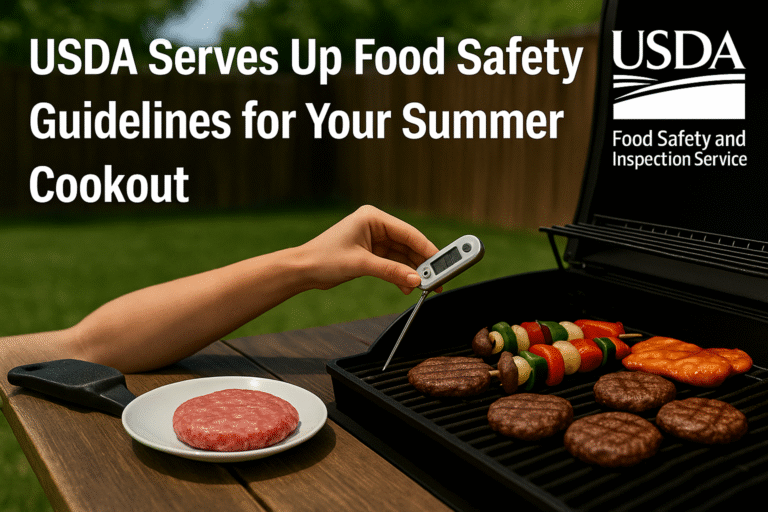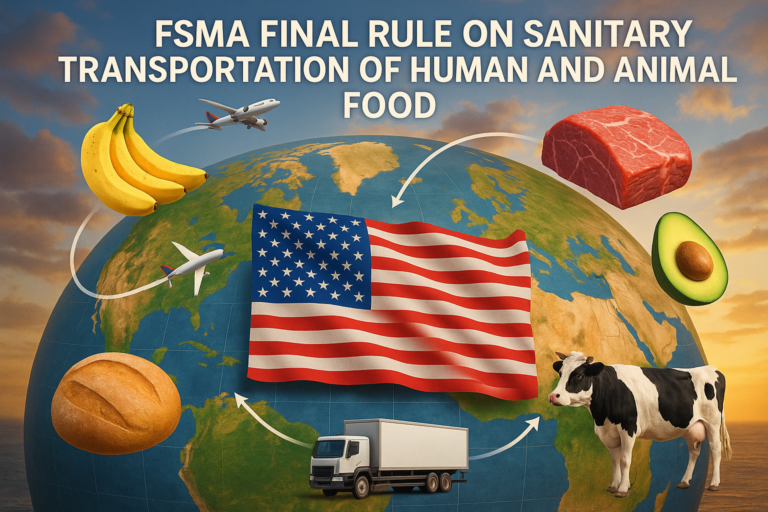Americans consume a lot of imported foods, this is why ensuring its safety is more important than ever. That’s why the U.S. Food and Drug Administration (FDA), under the Food Safety Modernization Act (FSMA), requires imported food to meet the same strict safety standards as food produced in the U.S.
The Foreign Supplier Verification Programs (FSVP) final rule, now fully implemented, holds U.S. food importers responsible for verifying that the food they bring in is safe, properly labeled (especially for allergens), and produced under conditions that protect public health.
Why This Matters to You
Imported food makes up a significant portion of the U.S. food supply—roughly 19% overall, including more than half of the fresh fruit and about one-fifth of the fresh vegetables Americans eat, according to USDA data. With such a large portion of our food coming from abroad, the risks of foodborne illness, contamination, and mislabeling rise—unless strong safeguards are in place.
What the FSVP Rule Requires
Under the FSVP rule, U.S. food importers must take proactive steps to ensure the safety of imported food. These include:
- Approving Foreign Suppliers Based on Risk: Importers must establish and follow written procedures to approve suppliers. This includes evaluating the level of risk associated with each food (based on a hazard analysis) and the supplier’s past performance and compliance history. In special cases, temporary imports from unapproved suppliers may be allowed—but only with sufficient verification in place beforehand.
- Identifying Potential Hazards: Importers must assess known or reasonably foreseeable hazards in each food—drawing from scientific studies, historical data, outbreak records, and expert insights.
- Conducting Tailored Verification Activities: Depending on the nature of the food and supplier, importers must choose the right verification tools, such as:
- Annual onsite audits of foreign facilities
- Sampling and lab testing
- Reviewing the supplier’s food safety records
- Taking Prompt Corrective Action: If a foreign supplier is found to be using unsafe practices or if their food is contaminated or mislabeled (especially with allergens), importers must act quickly to correct the issue—or stop imports from that supplier.
A Flexible Rule for a Complex Global Food Chain
The FSVP rule is designed to be practical and adaptable, allowing flexibility in how importers meet the requirements. It reflects the realities of today’s global food system and aligns with modern supply chain practices.
However, some types of imported food are exempt from FSVP because they are already regulated under different programs. These include:
- Certain juice and seafood products (covered under HACCP regulations)
- Food imported for research or evaluation
- Food for personal consumption
- Alcoholic beverages and their ingredients
What This Means for Consumers
For consumers, the bottom line is this:
Whether your food is grown in California or Colombia, processed in Maine or Malaysia, FSVP ensures it meets the same high food safety and quality standards.
Thanks to FSMA and the FSVP rule, you can have greater confidence that the food on your plate is safe—no matter where in the world it comes from.
Source: United States Food and Drug Administration (FDA)
Reach out to Fresh Group Food Safety And Quality Consulting for any inquiries related to food quality and safety.




